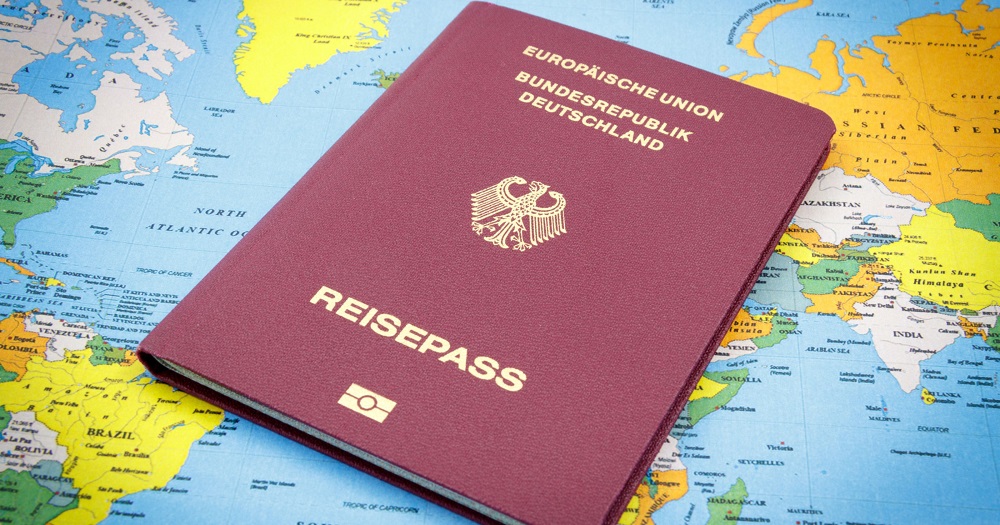
Fastest way to obtain German citizenship. German citizenship. Becoming a naturalized citizen in Germany is a thorough and time-consuming procedure. Granting citizenship to a foreigner requires careful evaluation by the naturalization authorities in Germany. While there are no shortcuts or fast routes to citizenship, there are some strategies to expedite the process, facilitating the acquisition of German citizenship as swiftly as possible. Here’s the fastest way to obtain German citizenship.
What is the fastest way to obtain German citizenship?
Consider the following steps for the fastest route to becoming a naturalized citizen in Germany:
- Identify the fastest pathway to German citizenship.
- Apply for your chosen immigration pathway.
- Fulfill residency and integration requirements.
- Apply for permanent residence.
- Prepare for the naturalization application.
Identify the Fastest Pathway to German Citizenship
The swiftest way to achieve naturalization in Germany is by pursuing an employment-based immigration pathway. This is due to the fact that a work visa allows for immediate long-term settlement in the country, making it possible to qualify for a permanent residence permit quickly. Additionally, this accelerates the process of meeting the residency criteria essential for naturalization.
In Germany, several work visas are available, each with varying rights and potential path to citizenship. Some visas, like the EU Blue Card and options for self-employment or entrepreneurship, offer expedited routes to German citizenship:

EU Blue Card for Germany
- Issued to highly skilled people with a university degree or similar qualifications and a job offer in Germany meeting specific salary criteria.
- Grants benefits, including the ability to work and live in Germany for up to four years.
- After 33 months of work, or as soon as 21 months with sufficient German language skills (B1 level), you can apply for permanent residency, hurrying the path to German citizenship.
Self-Employment or Entrepreneurship
- Starting your own business in Germany can lead to citizenship, provided you meet specific qualifications and achieve successful business operations over time.
- Eligibility requires a viable business plan and meeting financial criteria, considering job creation and economic impact.
- Offers potential permanent residency and, ultimately, German citizenship if your business thrives and you meet residency requirements.
In addition to employment-based immigration, family-based immigration is another pathway to German citizenship. Marrying a German citizen or joining a spouse or partner with a work visa as a highly skilled individual can expedite the process, contingent on having a family member in Germany.
Apply for Your Chosen Immigration Pathway
Initiating the application process is the next crucial step. This involves gathering essential documents, completing application forms, submitting fees, and meeting specific pathway requirements. Be prepared for interviews or appointments, monitor your application’s progress, and ensure your legal residency status is maintained during this phase. Submit your application via a foreign German mission in your home country in most cases and await a decision, considering that processing times may vary.
Apply for Permanent Residence
Prior to attaining German citizenship, securing permanent residence or a Settlement Permit is imperative. Typically, this status is achievable after residing in Germany for five years. However, specific visa types, such as the EU Blue Card, may expedite this process, allowing for permanent residence after 33 months (or even 21 months under certain criteria).
Read also: Here’s how African refugees approaching their 6th year can get German citizenship
Prepare for the Naturalization Application
The final step involves applying for naturalization once specific criteria, including residency requirements, are met. Naturalization eligibility entails having lived in Germany for a minimum of 8 years, during which you held a Settlement Permit or permanent residence. This duration is reduced to three years for spouses of German citizens and four for spouses of foreign nationals.
A faster route involves taking part in integration courses, making you eligible for citizenship after 7 years, or 6 if you engage in specialized integration courses. This proactive approach can streamline the naturalization process, offering a faster pathway to German citizenship.
According to the BAMF, naturalisation costs EUR 255 per person. A fee of EUR 51 applies to minors who are to be naturalised with their parents. Minors who are to be naturalised without their parents must also pay EUR 255.
Is it possible to attain German citizenship by investing in Germany?
While Germany does not offer a direct pathway to permanent residence and eventual citizenship through investment, unlike some other countries, there is an investment option available through the self-employment visa program. This avenue enables persons to apply for citizenship after finishing six years of residence in Germany.
Read also: Germany’s new citizenship law: 10 key changes and their impact

Are there specific jobs that lead to German citizenship?
While there are no particular jobs that guarantee a fast path to German citizenship, certain jobs are in higher demand, increasing your chances of getting a work visa:
- Engineering and manufacturing
- Entrepreneurship and self-employment
- Teaching and academia
- Skilled trades
- IT and software development
- Medical and healthcare professions
- STEM (Science, Technology, Engineering and Mathematics) Fields
